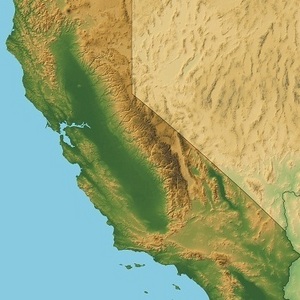UC-Davis publishes Calif. low carbon fuel standard status update

May 8, 2013
BY Erin Voegele
The University of California-Davis Institute of Transportation Studies has published a new status review of the state’s low carbon fuel standard (LCFS). The review is the second in a series of periodic status reports. According to information published by the ITS, the status reports review data, analyze trends and identify potential challenges associated with the program. However, the status reports do not make predictions.
California’s LCFS requires obligated parties to reduce the carbon intensity of the fuels they supply by a minimum of 10 percent by 2020, starting with a 02.5 percent reduction in 2011. The percentage steps up through 2020.
The spring 2013 status review addresses several topics, including credits and deficits, the carbon intensity of fuels, credit trading and prices, federal renewable fuel standard (RFS) and implications for LCFS feedstocks, as well as issues that affect compliance.
Advertisement
According to the report, low carbon fuels displaced approximately 6.2 percent of California’s gasoline and diesel transportation fuels in 2012. The average carbon intensity for gasoline was 84.95 grams of carbon dioxide equivalent per megajoule (gCO2e/MJ), and average carbon intensity for diesel was 58.34 gCO2e/MJ. By the close of the year, the ITS said the LCFS recorded net excess credits of 1.285 million metric tons of CO2e, which equates to approximately half the credits needed to meet the 2013 obligation.
Regarding biofuels used to meet LCFS obligations, the ITS report noted that 78 percent of LCFS credits were generated from ethanol in 2012. An additional 12 percent were generated from natural gas and biogas, in both liquid and compressed forms. Approximately 9 percent of credits under the program were generated from biodiesel and renewable diesel, with only 1 percent from electricity.
On a volume basis, corn ethanol and ethanol pathways of mixed corn/sorghum/wheat accounted for 95 percent of the fuel volume under the LCFS, but only 80 percent of the net LCFS credits. Corn/sorghum/wheat mixed ethanol contributed approximately 19 percent of biofuel credits. Due to their low carbon intensity value, biofuels from waste feedstock generated 10 percent of the LCFS credits in 2012, but comprised only 1 percent of the total biofuel volume.
Advertisement
According to the report, California consumed 19 percent of total U.S. imports of sugarcane ethanol in 2012, but only 10 percent of the nation’s total fuel and corn ethanol consumption. The ITS said this usage pattern could be due to more favorable treatment of Brazilian sugarcane ethanol under the LCFS.
None of the 21,093 gallons of cellulosic biofuels produced nationwide in 2012 reached the California market for LCFS compliance purposes.
A full copy of the 2013 status report can be downloaded from the UC-Davis ITS website.
Related Stories
With exclusive licensing to a camelina seed variety, Ash Creek Renewables is breaking down barriers to a renewable future.
Keolis Commuter Services, the Massachusetts Bay Transportation Authority’s operations and maintenance partner for the Commuter Rail, has launched an alternative fuel pilot utilizing renewable diesel for some locomotives.
The biodiesel industry has been facing turbulence, but the release of long-overdue policy could course-correct.
The U.S. House of Representatives early on May 22 narrowly passed a reconciliation bill that includes provisions updating and extending the 45Z clean fuel production tax credit. The bill, H.R. 1, will now be considered by the U.S. Senate.
U.S. EPA Administrator Lee Zeldin on May 21 stressed the agency is working “as fast as humanly possible” to finalize a rulemaking setting 2026 RFS RVOs during a hearing held by the U.S. Senate Committee on Environment and Public Works.
Upcoming Events










